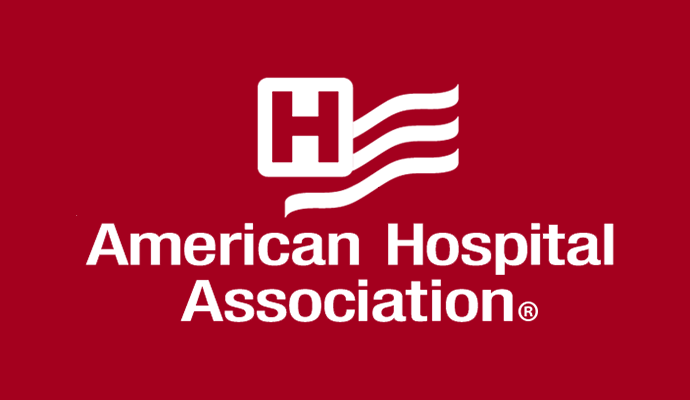AHA Asks CMS to Amend Residency Slot Distribution in IPPS Final Rule
AHA urged CMS to prioritize hospitals that meet all qualifying categories instead of just hospitals in health professional shortage areas when distributing residency slots.

Source: AHA Logo
- The American Hospital Association (AHA) has asked CMS to reconsider its methodology for distributing residency slots to teaching hospitals, which the agency finalized in the hospital inpatient prospective patient system (IPPS) final rule for fiscal year 2022.
In a letter to CMS Administrator Chiquita Brooks-LaSure, AHA expressed mixed feelings about certain changes to the Consolidated Appropriations Act (CAA) of 2021 in the IPPS rule, which impacted graduate medical education (GME) funding distribution.
As a part of the IPPS final rule, CMS announced that it would fund 1,000 Medicare physician residency slots to qualifying hospitals over five years.
The agency aimed to use the additional slots to address workforce shortages in rural and underserved communities.
Under the IPPS, CMS modified the distribution method to award residency slots based on the length of the training program. The agency also changed how it will determine which hospitals qualify for residency slots. A hospital’s main campus or provider-based facility no longer has to be physically located in a primary care or mental health professional shortage area (HPSA) to be eligible for funding.
AHA expressed support for these changes and said the policies would allow teaching hospitals to create sustainable training programs and increase the opportunity for residency slot eligibility.
However, the trade association said it was concerned with the CMS decision to alter the methodology to prioritize residency slot distribution by HPSA score and training time in HPSA areas, as these tactics do not reflect statutory intent.
According to AHA, the statute says that hospitals can meet one of four categories to be eligible for GME funding, and only one of the categories requires that hospitals serve areas that are designated HPSAs.
Under the IPPS final rule, CMS will require a significant amount of training time to occur in HPSAs and will use HPSA scores to prioritize residency slot distribution in all four categories, the letter stated.
“This reliance on HPSAs minimizes Congress’ other priorities to expand training slots for hospitals in rural areas, training above their cap, and in states with new medical schools,” AHA wrote.
Additionally, CMS finalized a policy that groups hospital applications by HPSA score and prioritizes hospitals with higher scores. This modification also goes against statutory intent, as the statute requires that 10 percent of all residency slots go to each of the four eligible categories. CMS has stated that this method would satisfy the statute, but AHA said it has its doubts.
The new policies may also increase administrative burden for hospitals, AHA said. HPSA designations change every year, which would make it difficult for hospitals to monitor training completed in an HPSA.
Nearly 15 percent of primary care HPSAs are designated as “proposed for withdrawal,” meaning their HPSA status would end, the letter noted. Hospitals could also have to train residents across several HPSAs to meet the requirements, making it difficult for programs to track multiple areas at once.
AHA urged CMS to reconsider this methodology for residency slot distribution and instead base the allocation on the four categories included in the statute. The agency should prioritize hospitals that qualify in more than one category and give the highest priority to facilities that qualify in all four categories.
“This approach would be less burdensome and offer a much clearer metric for qualifying hospitals,” the letter stated. “It also is consistent with the statutory criteria, which do not place any additional emphasis on HPSA service or scores, and still supports teaching hospitals serving underrepresented and historically marginalized populations.”
As the deadline to apply for residency slots for fiscal year 2023 is March 31, 2022, AHA asked CMS to distribute these slots without delay—as the healthcare workforce continues to suffer shortages—and assess the methodology in the IPPS for the future.
AHA also asked CMS to publish the results of the FY 2023 distribution and collaborate with stakeholders to improve the approach in the future.
